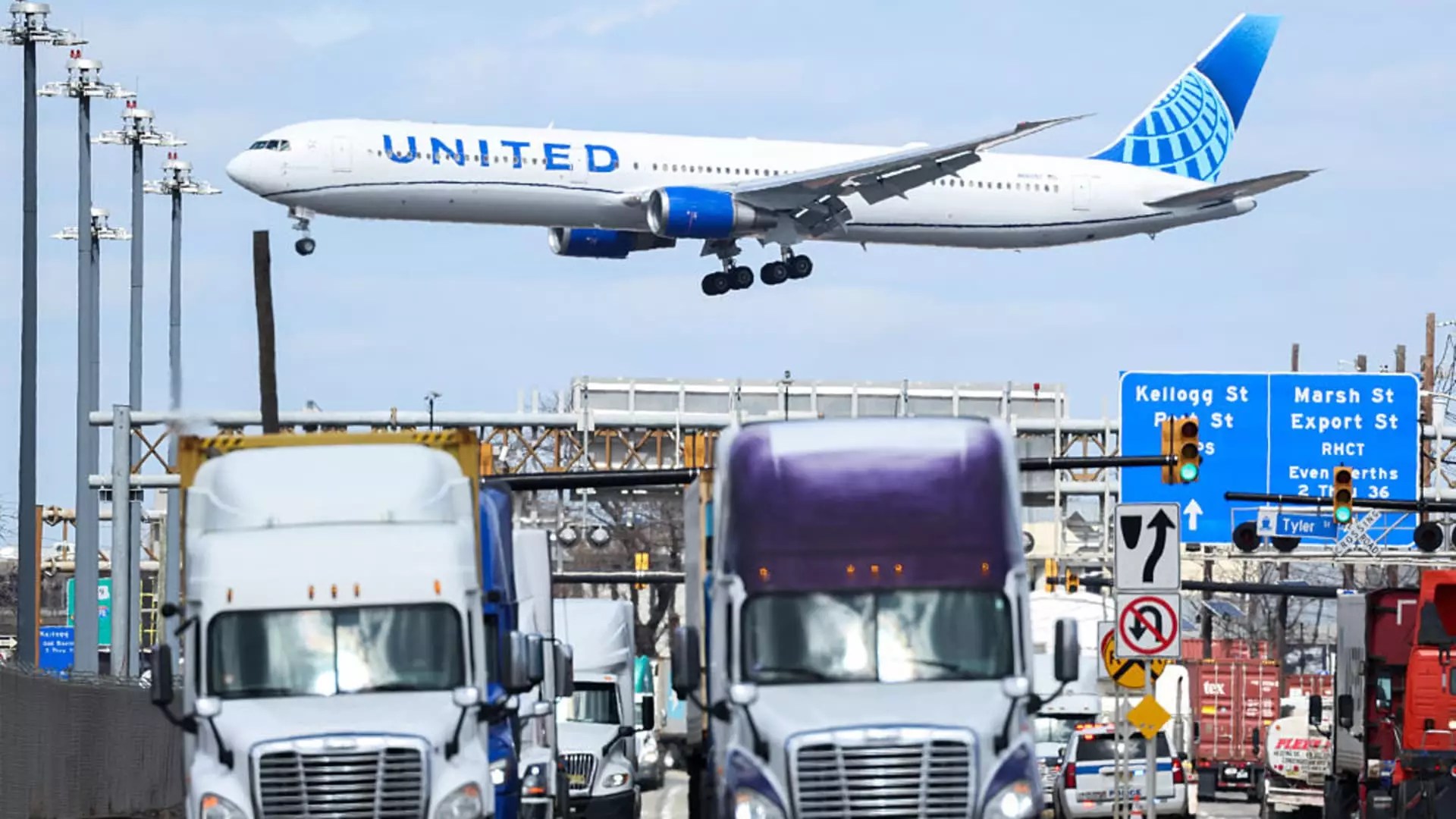In an era steeped in uncertainty, United Airlines recently exhibited a mix of optimism and caution, reflecting a broader malaise that hangs over the airline industry. While the company has upheld its full-year earnings forecast, they’ve also offered a secondary projection should the U.S. plunge into recession. This is a telling indicator of the times we live in—unpredictable and fraught with potential pitfalls. Economists and analysts alike grapple with forecasting in an environment where the implications of trade tensions and government policies loom large. Indeed, the sentiment within the airlines’ financial ambiance echoes a universal truth: the future is simply impossible to predict with any assuredness.
Adapting to Demand Dynamics
As United Airlines trims its domestic flight offerings by 4%, it becomes increasingly clear that the airline is attempting to adapt to the shifting currents of travel demand. According to reports, domestic travel has shown signs of softening, while higher-margin international bookings remain robust. This pivot appears sound on the surface, allowing the airline to allocate its resources more efficiently. However, there’s also an underlying risk—by cutting domestic flights, United risks alienating a segment of customers who might feel abandoned in favor of more lucrative international travelers. This could create a schism between customer expectations and corporate strategies, which is reminiscent of decisions made during prior economic downturns.
Keeping an Eye on the Numbers
United Airlines recently announced a dramatic turnaround from a loss to a profit of $387 million in the first quarter, showcasing a rebound underscored by resilience and strategic foresight. However, let’s delve deeper. While the adjusted earnings per share surpassed Wall Street estimates, the minor revenue shortfall indicates the company might be feeling the weight of external pressures. Unit revenue from domestic flights fell by 3.9%, which raises an eyebrow—if domestic routes falter while premium international services thrive, does that suggest a volatile repositioning of priorities that could backfire? Without careful management, a myopic focus on profit could alienate loyal domestic customers while failing to capture new international patrons.
Sector Longevity: A Double-Edged Sword
CEO Scott Kirby’s confidence in United’s long-term strategy was on full display, with assertions that their approach has generated industry-leading margins. On the horizon lies a convoluted interplay between high-stakes competition and cautious expansion—a balancing act that is notoriously prone to missteps. While Kirby’s remarks present an aura of stability, one must question whether such proclamations can withstand the barrage of economic adversity. United’s success will ultimately depend on external market conditions and an acute level of operational agility—factors that are notoriously difficult to forecast in turbulent times.
Premium Surge: But at What Cost?
In a strange twist, the airline sector is benefiting from a group of travelers willing to pay extra for premium services, bolstering revenue even as the economic backdrop grows increasingly strained. United highlighted a 17% growth in premium cabin bookings, but one must scrutinize the sustainability of this trend. Will these consumers remain intact as economic conditions shift? If a recession pushes average consumers to tighten their belts, the potential for this premium surge to wear thin is significant. This precarious dependency on the willingness of a select few to foot the bill could render the company vulnerable to broader economic fluctuations.
The Broader Implications
As United Airways navigates the complexities of fluctuating demand and industry competition, one must ponder the implications of their choices, both for consumers and for the broader industry. In a crowded marketplace, marked by geopolitics, deregulation, and shifting consumer behavior, airlines are at the mercy of their strategies and market adherence. The pivot towards international flights in response to domestic demand softness serves as a reminder that, while a robust profit margin is crucial, it is equally essential not to lose sight of customer loyalty on home soil. United’s journey serves as an illustrative case of how adaptability can either provide a pathway to success or spiral into an abyss of financially-induced isolation.


Leave a Reply